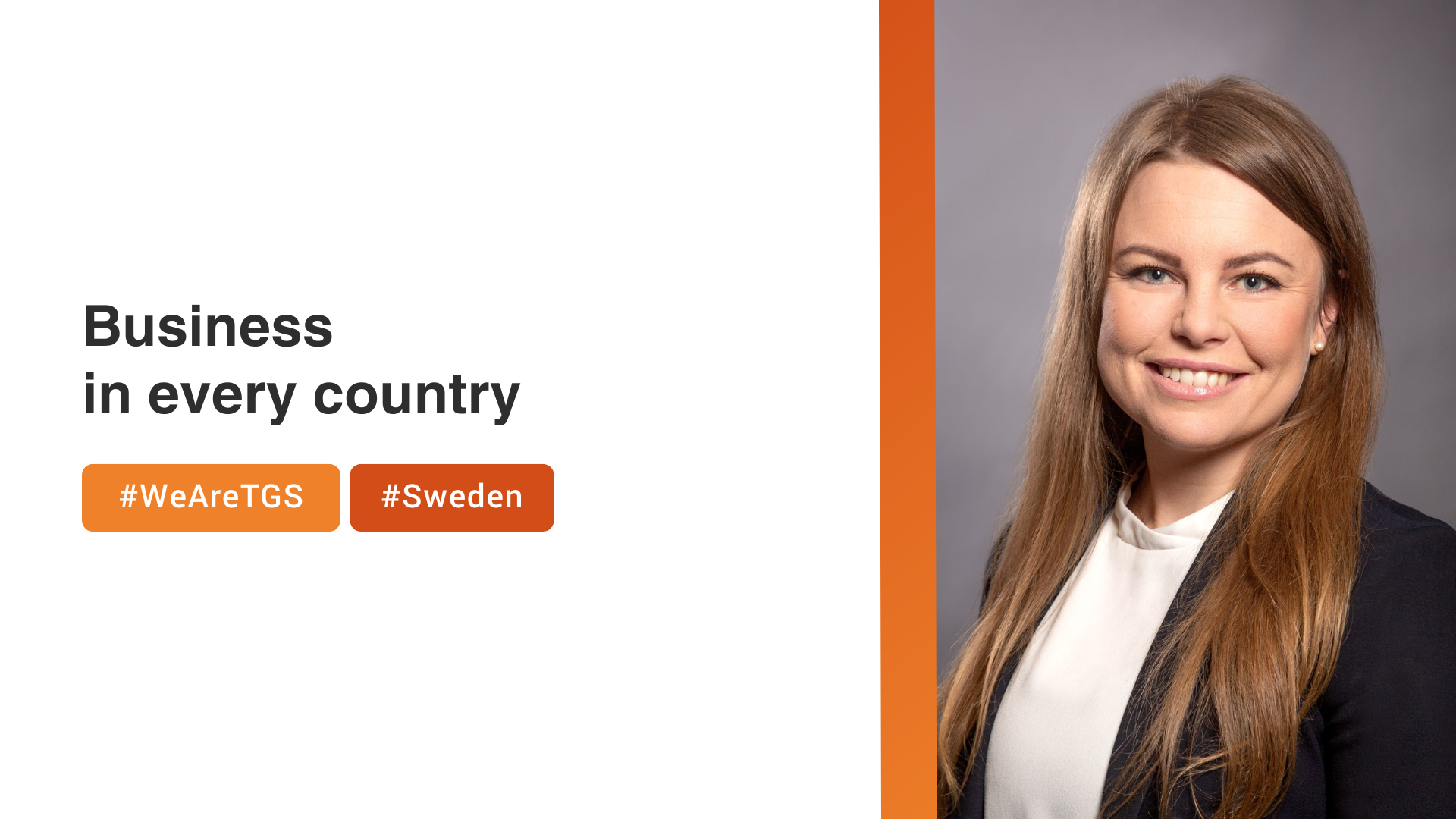16/10/2024
Business in every country: Sweden
Business advisory Europe
Sandra Holmkvist
Could you briefly introduce yourself?
Hi, My name is Sandra Holmkvist. I’m a partner and head of advisory at Edlund & Partners AB. I specialize in advising small medium enterprises (SMEs) regarding corporate reorganizations, corporate law, capital raising, corporate tax, sustainability issues and ESG reporting. I hold a Master of Business and Administration and 6 years’ experience from Big-4.
Can you tell us about your company and its main activities?
We are an audit firm based in Sweden, our goal is to be the best partner for small and medium-sized companies. Our services consist of audit, tax, advisory and finance. A hand-picked team of the industry’s most competent and committed people works with us. We work with digital solutions that enable us to meet you as a customer in the way that suits you and your business needs.
What are the key cultural aspects one should be aware of when doing business in
your country?
Equality and Consensus: Sweden values flat organizational structures and consensus-driven decision-making. Sweden is also known for its strong focus on gender equality. It’s important to recognize and respect this value in business interactions. Women are often in leadership positions, and gender biases are not tolerated. Swedes can be formal in certain situations but there is a general trend toward informality and first names are preferred, even in professional settings. Family policies, including generous parental leave, are an important aspect of the Swedish workplace, and this reflects the value placed on work-life balance and equality.
Punctuality & Work-life balance: Time management is crucial, with a focus on efficient, respectful use of time. Arriving on time for meetings is seen as a sign of respect. Being late without notice can be perceived as disrespectful or unprofessional. Swedes value a healthy work-life balance, so meetings are usually concise and focused. The typical workday ends at 5 p.m., and there is a strong focus on efficient use of time.
Direct Communication: Swedes prefer clear, honest communication and low-context interactions meaning that communication is explicit, and people say what they mean.
Fika Culture: Social coffee breaks, known as fika, are key to building relationships.
Sustainability: Environmental responsibility and gender equality are integral to Swedish business practices. Many Swedish companies prioritize CSR and expect business partners to act ethically and responsibly.
Long-Term Relationships: Trust and reliability are essential for lasting business partnerships.
How does the local regulation impact foreign businesses looking to operate in your country?
Sweden provides a transparent, business-friendly environment, but foreign businesses must adhere to specific regulations regarding business registration, taxation, labor laws, environmental standards, and GDPR compliance. Intellectual property, competition law, and data protection are strongly enforced, and foreign investments are generally welcome.
If you for example would like to start a limited liability company, you need to register with the Swedish Companies Registration Office (Bolagsverket) and the Swedish tax authority (Skatteverket).
- The required minimum share capital for a limited liability company is SEK 25,000.
- Sweden has a corporate tax rate of 20,6 % (as of 2024), which is relatively favourable compared to many European countries.
- Foreign businesses operating in Sweden need to understand the rules around permanent establishment, which determines whether they are liable to pay Swedish taxes on income earned in the country. Permanent establishment occurs when a business has a fixed place of business, such as an office or employees in Sweden
Which industries are currently experiencing significant growth in your country?
Sweden is experiencing significant growth across several key sectors, particularly in technology, green energy, electric vehicles, biotechnology, and e-commerce. The country’s focus on sustainability, innovation, and digital transformation is driving these industries forward, making Sweden a hub for growth in the green economy and tech-driven sectors.
Sweden is a global leader in the renewable energy sector, particularly wind, solar, and hydropower. Innovations in recycling, waste management, and circular economy models are growing rapidly in Sweden. Sweden is also home to many successful startups and tech companies, with a focus on SaaS (Software as a Service), cloud computing, and digital infrastructure.
What languages and business customs are essential to know? Is it necessary to speak the local language to do business effectively?
It’s not necessary to speak Swedish to do business effectively. English is widely spoken and understood in Sweden, especially in business contexts. Many Swedes are fluent in English, and business meetings, negotiations, and emails can often be conducted entirely in English. Therefore, it’s not necessary to speak Swedish to operate effectively, especially in international business settings. Although, understanding key languages and business customs can significantly enhance communication and help build stronger relationships.
Final Advice for Collaboration
Understanding and respecting Sweden’s focus on equality, sustainability, and transparency will help foreign businesses succeed. Building long-term, trust-based relationships is key, and businesses should ensure compliance with local regulations to avoid any legal or financial issues. Finally, consult a good advisor. We at Edlund and Partners are happy to help you navigate among laws and regulations and we can guide you within our network to contacts who could be relevant for you.



